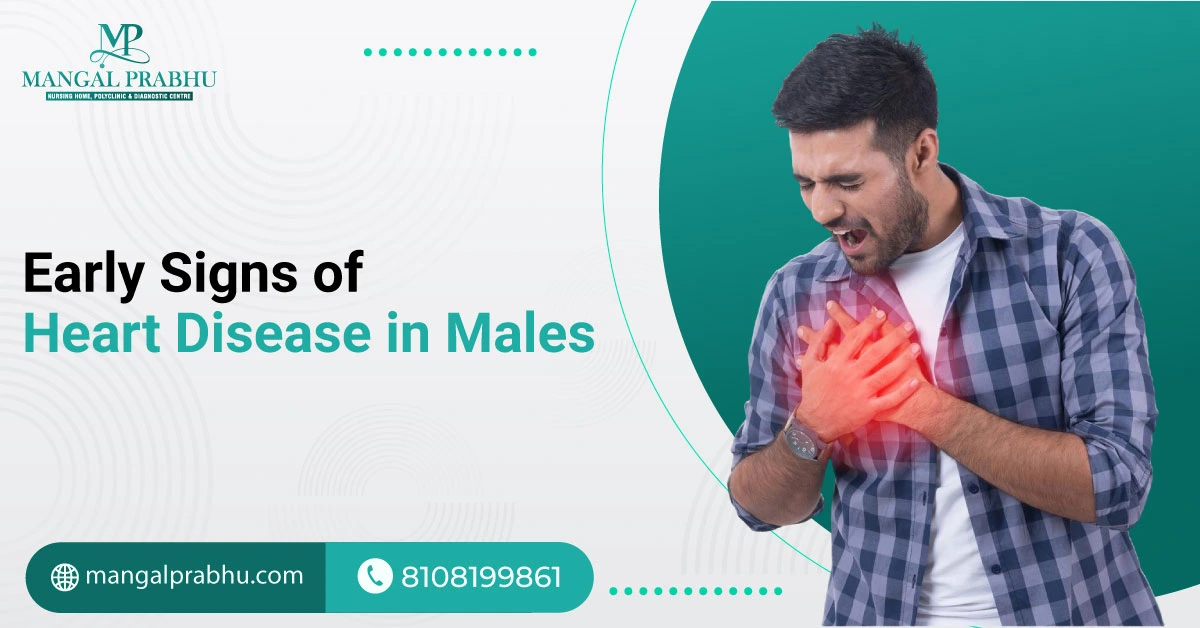
Not every significant heart issue starts with a serious symptom, like severe pain in your chest. Although men and women share many symptoms of heart issues, men are more likely to experience crushing chest pain with a squeezing sensation or a feeling of fullness in the chest. It’s best to see a general physician in Navi Mumbai if you experience the following symptoms.
Signs of Heart Disease in Males
i) Chest Discomfort or Pain:
The most common symptom of heart attack or other heart disease is chest pain. It could be mild discomfort or severe, crushing pain. It indicates a lack of proper oxygen or blood supply to the heart. Mild chest pain is often mistaken for indigestion or strain, which can aggravate the issue.
ii) Shortness of Breath:
If you find it hard to catch your breath after physical activity, it’s time to visit a multispecialty hospital in Navi Mumbai. This could be the early warning signs of coronary artery disease or heart failure.
iii) Fatigue and Weakness:
If you are unable to perform your regular household chores or routine activities that were once easy, it could be a sign your heart isn’t pumping blood efficiently. As your body’s demand for oxygen-rich blood is not met, you will feel extremely tired.
Additional Symptoms of Heart Disease in Males
a) Irregular heartbeat:
Also called Arrhythmia, irregular heartbeat can be the sign of heart issues. Heart palpitations that occur occasionally might not be a cause for concern, but if you notice your heart racing frequently, it needs attention.
b) Swelling in Legs, Ankles, and Feet:
Another sign that your heart needs help is the noticeable swelling in your lower part of the body. This may not be painful, but swelling indicates fluid retention, which occurs due to poor blood flow.
c) Dizziness:
Occasional dizziness could happen due to lack of sleep or dehydration, but if it becomes a recurring thing, you may want to see a cardiologist for a thorough evaluation. Dizziness is a sign that your heart isn’t pumping sufficient blood to your brain.
Risk Factors
Certain risk factors can increase your likelihood of developing heart conditions in the long run. Here are a few that make people more prone to heart disease.
1) Age and Family History:
If heart issues run in your family, you might be at an increased risk of developing the same problems. There’s nothing you can do about genetic heart problems, but knowing your family history and taking proactive steps to maintain your heart health can help.
2) Lifestyle Factors:
Maintaining an active lifestyle can control your weight, improve blood circulation, and strengthen your heart. Certain lifestyle choices, like smoking, can cause high blood pressure and plaque buildup in your arteries. Quit smoking and follow a healthy lifestyle to keep your heart healthy.
3) High Blood Pressure and Cholesterol:
High blood pressure makes your heart work harder, placing you at a greater risk for heart attack, stroke, and other heart diseases. Heart diseases can crop up over time with many subtle signs that tend to go unnoticed. Being aware of the early warning signs and seeking immediate medical care when needed can mitigate your risk of developing heart disease.
